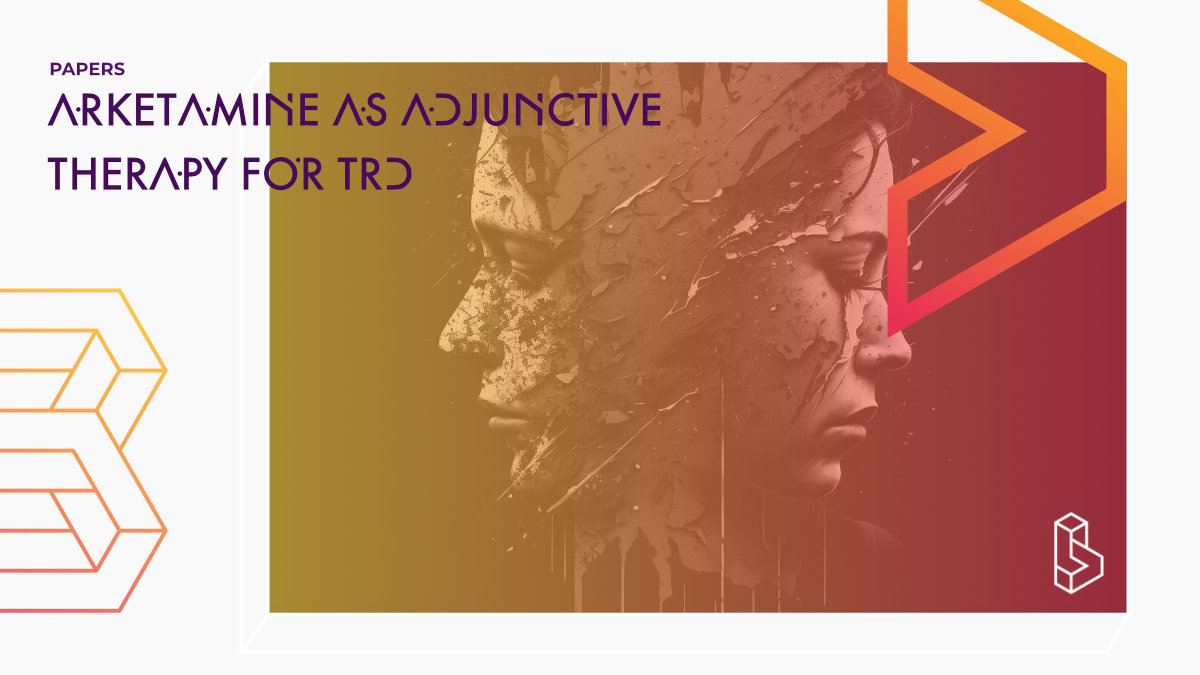This double-blind, cross-over study (n=10) finds that arketamine (35mg/70kg, the ‘right-handedness of ketamine) isn’t superior to placebo, but does find it to be safe in a population with treatment-resistant depression (TRD).
Abstract
“Background: Racemic ketamine is a mixture of (R)-ketamine (arketamine) and (S)-ketamine (esketamine), with the latter regarded as the main isomer for antidepressant effects. However, preclinical data and one open-label human trial suggest arketamine might exert a more potent and longer-lasting antidepressant effect with fewer side effects. We aimed to explore the feasibility of a randomized controlled trial of arketamine for treatment-resistant depression (TRD) and to assess its efficacy and safety compared to placebo.
Methods: This is a, randomized, double-blind, crossover, pilot trial (n = 10). All participants received saline and arketamine (0.5 mg/kg) with a one-week interval. Treatment effects were analyzed with a linear mixed effects (LME) model.
Results: Our analysis suggested the presence of a carryover effect, so the main efficacy analysis was limited to the first week, which demonstrated a main effect of time (p = 0.038) but not for treatment (p = 0.40) or their interaction (p = 0.95). This indicates that depression improved over time, but without significant difference between arketamine and placebo. Analyzing the two weeks together, findings were the same. Dissociation and other adverse events were minimal.
Limitations: This was a pilot study with a small sample and underpowered.
Conclusions: Arketamine was not superior to placebo for TRD but demonstrated to be extremely safe. Our findings reinforce the importance of continuing studies with this drug, with better powered clinical trials, perhaps considering a parallel design with higher or flexible doses and repeated administrations.”
Authors: Gustavo C. Leal, Breno Souza-Marques, Rodrigo P. Mello, Igor D. Bandeira, Ana Teresa Caliman-Fontes, Beatriz A. Carneiro, Daniela Faria-Guimarães, Lívia N. F. Guerreiro-Costa, Ana Paula Jesus-Nunes, Samantha S. Silva, Daniel H. Lins-Silva, Mariana A. Fontes, Raíza Alves-Pereira, Vivian Cordeiro, Sidelcina Rugieri-Pacheco, Cássio Santos-Lima, Fernanda S. Correia-Melo, Flavia Vieira, Gerard Sanacora, Acioly L. T. Lacerda & Lucas C. Quarantini
Study details
Compounds studied
Ketamine
Topics studied
Treatment-Resistant Depression
Depression
Study characteristics
Placebo-Controlled
Double-Blind
Within-Subject
Randomized
Participants
10
Humans
Compound Details
The psychedelics given at which dose and how many times
Ketamine 35 mg | 1x
